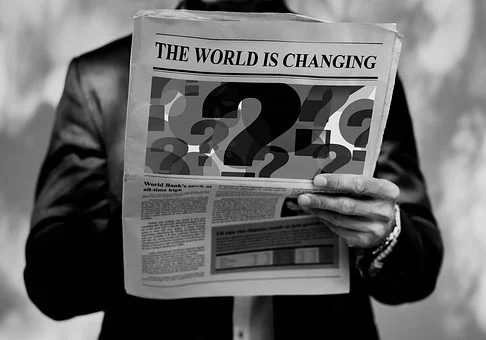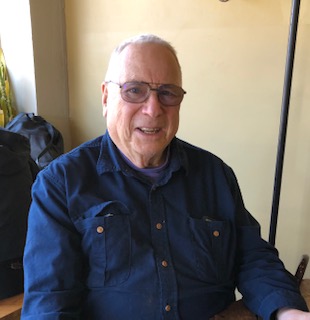Opinion: Today’s News, Wednesday, May 28, 2025

Photo: Pixabay.com. Creative Commons

From today’s newspapers:
In the Indy, Russ Vernon-Jones considers the profound moment we are in as the Trump Administration and its Congressional allies play havoc with American values, human values, and the Constitution.
In the Guardian, a critic reviews a documentary (available only in the UK apparently) about a young white film-maker who walked alone from Mississippi to Washington, DC, wearing a Black Lives Matter t-shirt and carrying a sign with the same message. This was in 2020 and he engaged in conversation (if that is the word) with white people who hurled invective at him as he made his way.
In the Boston Globe, a report on the latest move in the Trump Administration’s revenge fantasy against Harvard University – a letter charging that Harvard is practicing racial discrimination against “white people, men, straight people and, in some cases Asian Americans.” (Incidentally, the letter is a classic instance of the deliberate misuse of statistics and the perceived objectivity of numbers.)
Coming back to Russ’s commentary, which is written with his customary clarity, passion, and humanity, he seems to believe that we really have “a profound choice” at this moment in our nation’s history, and that our choice can be informed by the plea for community issued by retiring Surgeon General Vivek Murthy last January. Murthy’s piece is eloquent and aspirational but in both his essay and Russ’s there is one word that troubles me – the little word “we.” Both of the other two pieces that I cite from this morning’s news suggest that while “we” might be as all-embracing as Vernon-Jones and Murthy believe, it has just as often be used as a tribal signifier – “we” as distinct from “they.”
In 1787, with the ringing words of the Declaration of Independence in their ears, the Founders created an equivocating Constitution with regards to race and slavery. “We” may hold these truths to be self-evident, but They hedged their words so as to create a Union, half-slave and half-free, and they were probably right that without that equivocation, the federal Constitution would not have been ratified.
Seven decades later, “we” faced another choice. Abraham Lincoln proclaimed that the United States could not exist “half slave and half free,” but he was less clear about “equal,” as were many of the abolitionists who, after the enactment of the 13th, 14th, and 15th Amendments were not at all sure that Black and white Americans could live together. So after the failure of Reconstruction and the removal of federal troops from the former Confederate states, those states rapidly implemented the “Jim Crow ”laws to assure that white Americans would not have to live with Black Americans in those states.
Today’s news stories suggest that equality is still a contested value and still requires legal mandates. “We” still requires the scare quotes around it. For Trump, “we” denotes white people, men, straight people and, in some cases Asian Americans. For many BIPoC citizens, women, LGBTQA people and “in some cases” Asian Americans “we” includes those who share the cultural characteristics that Trump and his MAGA supporters seem to scorn. This is where we are in 2025.
Russ spends a lot of time reflecting on the sense of community urged by the retiring Surgeon General Vivak Murthy in January, as Murthy prepared to leave office. I am sure that Trump’s pinched sense of “we” is not what either Murthy or Russ had in mind. But in my gloomiest moments I think that this is where our nation’s history has been since 1619 and where much of the world is today. Our sense of “we” is informed by our sense of “they.”
In his commentary, Russ includes a graphic of Murthy’s Triad of Fulfillment, devised before the horrors of our current administration became clear. Murthy’s sense of community as depicted in the graphic is generous and embracing, perhaps too much so. What does it say about racists, bigots, narcissists, censors, murderers?
Perhaps the profound choice we have in America right now is whether to add diversity, equity, and inclusion to Murthy’s Triad? Whether to complicate the idea of community by accommodating disagreement and difference while excluding hate and injustice? We haven’t been good at this in North America for centuries. It turns out that community is hard. But this is the true profound choice we are facing in 2025, in the world, in the United States, and in Amherst.
Michael Greenebaum was Principal of Mark’s Meadow School from 1970 to 1991, and from 1974 taught Organization Studies in the Higher Education Center at the UMass School of Education. He served in Town Meeting from 1992, was on the first Charter Commission in 1993, and served on several town committees including the Town Commercial Relations Committee and the Long Range Planning Committee.
